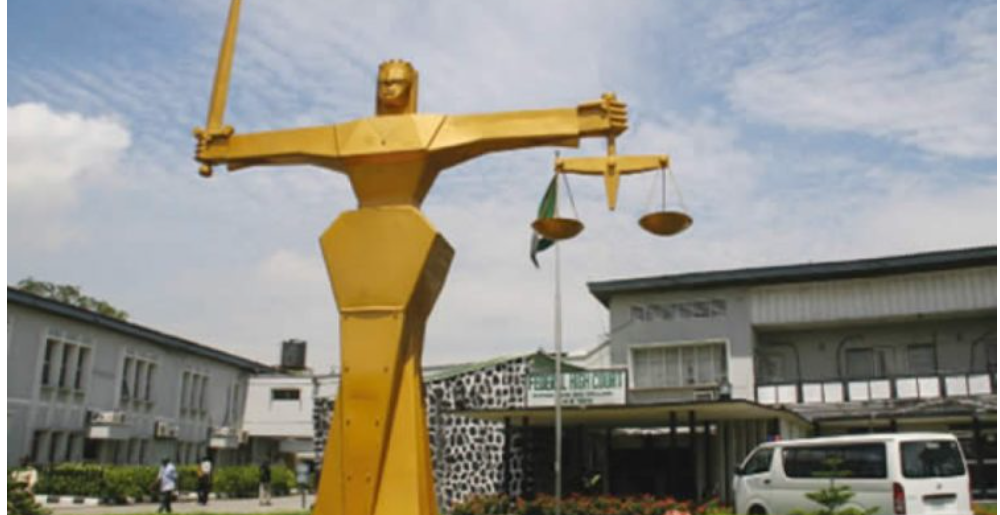A National Industrial Court in Abuja has ordered the National Assembly, the Revenue Mobilisation, Allocation and Fiscal Commission (RMAFC) and the Attorney General of the Federation (AGF) to urgently initiate measures to ensure upward review of the salaries and allowances of judges.
Justice Osatohanmwen Obaseki-Osaghae, in a judgment on Friday, held that the stagnation of the salaries and allowances of the nation’s judges since 2008 when they were last increased is not only embarrassing, but an injustice deliberately done to judicial officers, who tail daily to ensure justice for all.
The judgment was on a suit marked: NICABJ/142/2022 filed by a Senior Advocate of Nigeria, Chief Sebastine Hon, who argued that since 2008 when judges salaries and allowances were last increased, inflationary trend and currently socio-economic realities have rendered such pay inadequate.
Defendants in the case are the N/Assembly, the RMAFC, the AGF and the National Judicial Institute (NJI).
Justice Obaseki-Osaghae, who directed that her judgment be promptly served on the RMAFC for immediate action, ordered that the highest judicial officer, the Chief Justice of Nigeria (CJN) should now earn N10million monthly.
According to the judge, other Justices of the Supreme Court and the President of the Court of Appeal should earn N9milion monthly, while other Justices of the Court of Appeal and Chief Judges of the High Courts of States and Federal Capital Territory, President of the National Industrial Court, Grand Kadis of Sharia Courts of Appeal and President of Customary Courts are to earn N8m monthly.
The judge further ordered that other judges of the Federal High Court, High Court of States, National Industrial Court, High Court of the FCT, Sharia Courts of Appeal, and Customary Court of Appeal are to earn N7m monthly.
She frowned at the disposition of the AGF, the N/Assembly and the RMAFC to the case and dismissed the objections filed by the AGF and N/Assembly, challenging the court’s jurisdiction to hear the case.
The judge rejected the contention of the AGF that judges were workers, whose salaries are increased not as of right but through a negotiation process between the employees and their employers in the form of collective bargaining.
“Justices and judges, who are judicial officers, exercise the judicial powers of the state. They are holders of public offices in the same way as ministers and legislators. The Honourable Chief Justice of Nigeria is the head the third arm of government -the Judiciary. Justices and judges are the repositories of the Judiciary.
“The question to be asked is whether ministers (representing the Executive) and the legislators (representing the Legislature) are workers/employees, who should enter into negotiation and collective bargaining for increase in their salaries as the third defendant (the AGF) has stated that judicial officers should do.,” she said.
The judge said since judicial officers, like ministers and legislators are not unionised and have no union to fight their cause, the only way to effect increase in their salaries is by constant review of the Certain Political, Public and Judicial Office Holders (salaries and allowances, etc) Act as it applies to them (judicial officers).
“The salary of workers, in the context used by the third defendant is not be legislation. It is therefore very wrong for Justices and judges, who are judicial officers, and who are elevated to a high status by the 1999 Constitution to be referred to as workers by the third defendant (the AGF).
“Justices and judges of the Federal Republic of Nigeria are definitely not workers in the context used to address them in the third defendant’s affidavit and written address.
“It is not sensible under any circumstance for Justices and judges to engage in negotiation or collective bargaining over their remuneration. To do so will be at odd with judicial independence and the dignity of the judicial officers.
“The 1999 Constitution has made provisions on how the service conditions and salaries of judicial officers are to be determined” the judge said.
Justice Obaseki-Osaghae added that despite the clear constitutional and statutory provisions on how salaries and allowances of judges are to be increased, the N/Assembly, the RMAFC and the AGF have neglected to comply with the provisions.
“There is no doubt that from the evidence adduced that the salaries and allowances of judicial officers and their condition of service have been altered to their disadvantage after their appointment.
“Regrettably, the first, second and third defendants (N/Assembly, the RMAFC and the AGF), who the 1999 Constitution entrusted with the task of promoting the welfare and general wellbeing of judicial officers neglected, refused and failed to do this since 2008.
“Judicial officers of the Federal Republic of Nigeria have, by this failure been impoverished with the devaluation of the naira.
“By their status as Justices and judges, there is no doubt that they must and have suffered financial embarrassment and financial harassment as a result of their current salaries. It is a national shame.
“There can be no doubt that the poor salaries would have effect on the quality of work and general wellbeing of the judicial officers,” the judge said.
Justice Obaseki-Osaghae noted that it was strange that the AGF, who is the nation’s Chief Law Officer and the leader of the Bar, who ought to lead efforts to ensure adequate pay for judges, was against it.
She proceeded to among others, issued an order of mandatory injunction,compelling the N/Assembly, the RMAFC, the AGF and the NJC to forthwith put in place or activate legal and administrative machineries to commence the payment to the salaries she had earlier ordered.
The judge awarded N500,000 cost against the N/Assembly, the RMAFC and the AGF, to be paid to the claimant.
